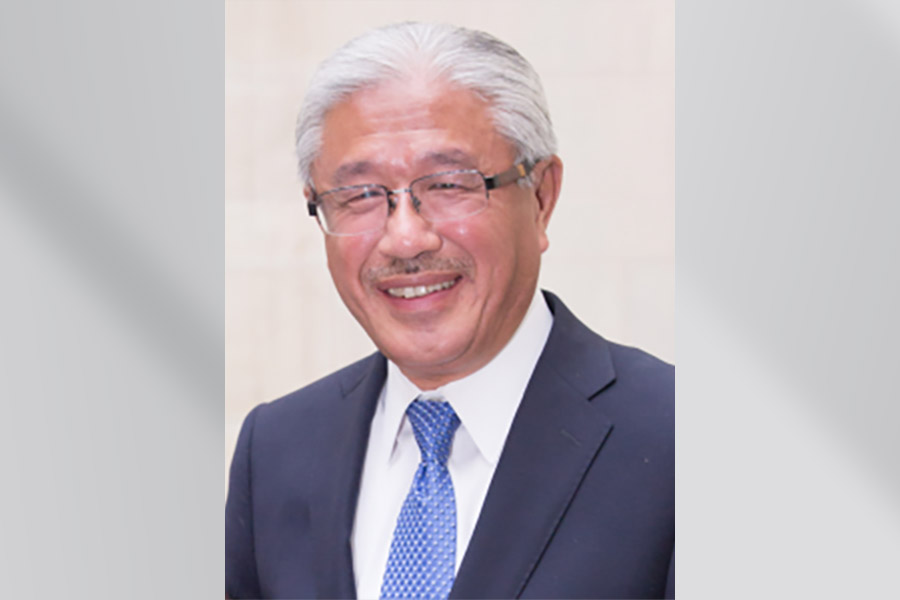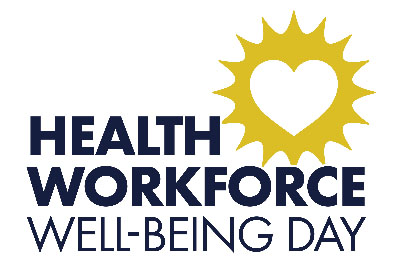The National Academy of Medicine Collaborative and more than 90 founding partners — including the U.S. Centers for Disease Control and Prevention’s National Institute for Occupational Safety and Health (NIOSH) and the Dr. Lorna Breen Heroes’ Foundation — have kicked off a series of events to recognize health workforce well-being and announced March 18 as the inaugural Health Workforce Well-Being Day.
To start, the NAM Collaborative celebrated with an event on Capitol Hill on Monday, March 11, featuring the U.S. surgeon general, members of Congress, founding partners and public participants. Related events will occur throughout March — see the full calendar.
A bipartisan resolution to designate March 18 as the nation’s first Health Workforce Well-Being Day of Awareness has been introduced by U.S. Senators Tim Kaine (D-VA) and Roger Marshall (R-KS) to recognize the seriousness of widespread health care worker burnout in the United States and the need to strengthen health workforce well-being.
Through the Health Workforce Well-Being Day, the National Academy of Medicine Collaborative and founding partners aim to recognize the importance of protecting health workers’ well-being to sustain our health system and ensure quality patient care. The Health Workforce Well-Being Day also is a day for action — learning from one another on the progress to advance the movement to support health worker well-being and expand evidence-informed solutions to make systemwide changes to improve health worker well-being and transform cultures.
As part of the National Academy of Medicine Collaborative’s dedication to supporting health professionals, the change-maker campaign was launched in October 2023 to mobilize a collective effort to drive change. Today, there are more than 350 health institutions nationwide that have signed up to the change maker campaign, declaring their commitment to making health worker well-being a long-term value.

“I am delighted that the nation will recognize our dedicated health workforce by the establishment of the Health Workforce Well-Being Day. I am energized by the national campaign that will foster health workers’ well-being. Together, we can advance the national movement to realize that attending to health worker well-being is not only critical to safeguard the health and safety of health workers, but also to ensuring a high-quality health sector for all,” said National Academy of Medicine President Victor J. Dzau, MD. “I am proud that the NAM is leading the movement, and that it is gathering a lot of momentum through the change maker campaign. Hundreds of organizations aligning towards this singular cause will be a significant source of change.”
At UNMC’s campus forum on Monday, UNMC Chancellor Jeffrey P. Gold, MD, celebrated the new observance.
“The well-being of our health care workforce is critically important,” said Dr. Gold, who had participated with the National Academy of Medicine leadership in a Zoom teleconference on the observance Monday morning with members of the U.S. Senate and House of Representatives, as well as other national health care leaders in the US Capital.” Paraphrasing Don Berwick, MD, formerly of U.S. Health and Human Services, Dr. Gold said “All health care professionals try to give their all to their patients each and every day; however, you cannot give what you do not have.”
Everyone is affected by the health worker burnout crisis, and everyone can play a role in ending it, from health institutions to members of the public. Health care and other institutional leaders can make a difference by committing to establishing well-being as a long-term value. Policymakers are encouraged to prevent and reduce the unnecessary burdens that stem from laws, regulations, policies and standards placed on health workers. Health workers are invited to catalyze their institutions to accelerate their well-being efforts. Members of the public can foster partnerships, trust and mutual respect together with their health providers. Acting together will build recognition that prioritizing health workforce well-being is essential for health workers, patients and the nation.
More details on how health leaders, policymakers, health workers and patients can participate in Health Workforce Well-Being Day, as well as take further next steps in the movement are available at the Health Workforce Well-Being Day website. Resources are available for all actors, including new change makers who are beginning their well-being journeys.
In 2022, the National Academy of Medicine Collaborative published the National Plan for Health Workforce Well-Being, calling for identified actors to strengthen the health workforce’s well-being and restore the health of the nation. The Health Workforce Well-Being Day will further the priorities of the plan and provide a regular opportunity for collective action.
“This day reminds us that we all have a role to play in tackling the health worker burnout crisis, and we can no longer sit on the sidelines,” said U.S. Surgeon General and National Academy of Medicine Collaborative Co-Chair Vivek Murthy, MD. “Confronting the long-standing drivers of burnout among our health workers must be a top national priority because our nation’s health depends on the well-being of our health workforce.”
“Our entire health care system benefits when we prioritize the health, safety, and well-being of health workers,” said NIOSH Director John Howard, MD, JD. “Fortunately, there are evidence-informed resources like our Impact Wellbeing campaign that health systems can use to accelerate or supplement their efforts toward ensuring the well-being of their workers. These tools help leaders drive sustainable, operational level systems change in their hospitals.”
The Health Workforce Well-Being Day is March 18, the anniversary of the Dr. Lorna Breen Health Care Provider Protection Act being signed into law. The act aims to reduce and prevent suicide, burnout and mental and behavioral health conditions among health professionals.
“Across the country, day after day, our health workers care for all of us, yet they endure an incredible toll on their own well-being because of how our health care system operates,” said Dr. Lorna Breen Heroes’ Foundation CEO Corey Feist, JD. “It will take all of us taking immediate and ongoing action to build a system where health workers can thrive, including policymakers who have the ability to reduce administrative burden for health workers everywhere.”
